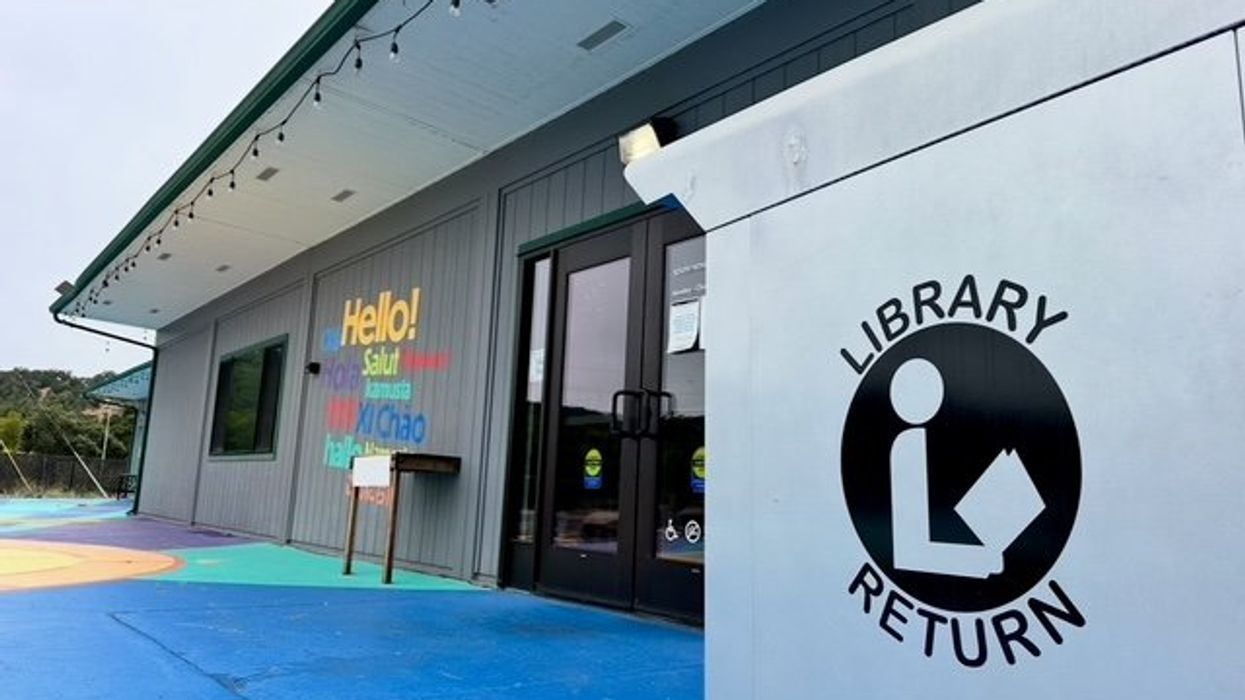Bay Area community advocates are cautioning community members to be wary of what they see, interact with, and post on social media regarding information about the United States Immigration and Customs Enforcement (ICE) and immigration, following a rumor that targeted the Marin County Library.
‘South Novato Library has safe rooms that cannot be accessed by border patrol or ICE without a court order,’ an Instagram story post reads, with photos of a room in the library next to the text alongside the library address. The graphic claims Immigration and Customs Enforcement would not have the right to enter the pictured room without a court-ordered warrant.
Despite the graphic becoming a popular share among the local community of Novato, a Marin County city located just north of San Francisco, the information is false.
“I am extremely concerned that people have taken the information that I shared in a specific meeting out of context and used it erroneously,” Héctor García, Bilingual Community Library Specialist, said in an email statement.
García believes whoever created the post took information he shared earlier in the year from a meeting in which he relayed information given to the library staff by the county. At the time of the meeting, the staff spaces at the South Novato Library were considered off-limits to ICE agents, he stated.
“Someone took a screenshot of this chat and shared it on their social media,” he said. “However, as we agreed in all our meetings concerning Immigrants Rights and Justice is that everything is changing at a fast speed during this administration and that we need to make sure before sharing that we are not misinforming people.”
South Novato Library’s Media Manager, Andre Clemons, said after looking at the post, a few things stood out to him.
“The quality of the image is not something we would produce, and there is no way to verify this information on who to call, but it did have our address, and it was written in a tone as if we wrote it, but that's not something that we write,” he said.
Clemons says he wishes people would call the library before reposting.
Despite the social media post’s claims, ICE agents do not need a court-ordered warrant to enter the South Novato Library. There is an ongoing investigation over the social media post, according to Clemons.
“The hope will be that we are able to protect our voice from being misused in a way that causes confusion and just creating more fear unnecessarily,” Clemons said.
The post became a popular share on social media platforms during a time of unrest and high tension across California after President Donald Trump’s order in April to go after sanctuary cities that “obstruct the enforcement of Federal immigration laws.” Tensions escalated in June when ICE began raiding parts of Los Angeles, and the city began to heavily protest all ICE activity. But it wasn’t just Los Angeles; protests erupted all throughout California in support of the immigrant community.
And for those who didn’t see it on their streets, they saw it on their screens. Social media apps like TikTok and Instagram are used to post sightings, videos of protests, and even videos of people getting detained by ICE.
However, local leaders warn that misinformation is flooding social media platforms at an increasing rate. Lisa Bennett, Executive Director of the nonprofit Multicultural Center of Marin, says misinformation is growing even beyond mainstream social media apps and manifesting in apps like ICEBlock and People over Papers. ICEBlock and People over Papers allow the public to post ICE sightings, confirmed or not.
“It’s difficult [to differentiate between fake and real content], we can’t even differentiate sometimes,” Bennett said. “There are people who do this maliciously, and so I have to look out for that.”
The Multicultural Center of Marin County hosts the Marin Rapid Response Network, a 24-hour hotline that serves immigrants by providing resources and assistance if they are faced with ICE. Bennett says they receive about 10-15 calls a day with people reporting or inquiring about ICE sightings. The network verifies in two ways: by sending trained observers or receiving a call from a community member whose family member has been detained.
Bennett says the most helpful action people can take is to call the Marin Rapid Response Network's 24-hour hotline and relay what they have heard or seen, allowing them to verify the information.
The Multicultural Center of Marin is working to create a mass alert system using its hotline. The hotline will notify the community about ICE's presence and debunk false sightings.
Above all, Clemons and Bennett advise that the community should not repost information regarding ICE without verifying it with the hotline or contacting entities directly, especially if the online content ties entities to specific information, such as the library.
Pricila Flores is a journalist in Northern California. Flores is a UC Santa Barbara alumna with a degree in Language, Culture and Society with a minor in Professional Writing under the Journalism track.




















Trump & Hegseth gave Mark Kelly a huge 2028 gift